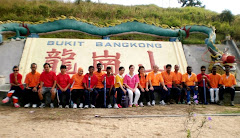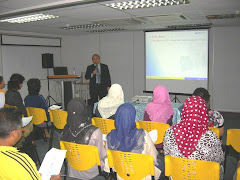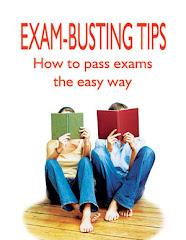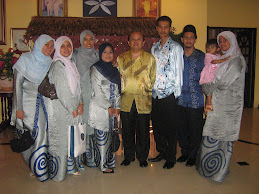Is OUM generating quality graduates or just graduates with paper qualifications? The acid test is simply this. Will our graduates be recruited by reputable companies? According to the International Chamber of Commerce (ICC), significant organisations "hire people who have the potential to produce extraordinary results - and people who are at the top end of the employability scale." So the proof is truly in the pudding. If the graduate is unable to display the type of quality wanted by employers and secure employment, then they cannot be called quality graduates.
According to Assoc Prof Dr Abdul Wahab bin Abdul Ghani, an Associate Professor in the Faculty of Education and Languages and also the Chief Internal Auditor for Quality Management at OUM, there are three categories of learners at OUM: fresh school-leavers, in-service adults and senior citizens. All three groups study at OUM with different expectations.
For fresh school-leavers, employability and acceptance of OUM qualification are of prime importance, while for in-service or working learners, employability may not be as vital as progress in their career. Finally, there is the senior citizen category. They study for the sake of studying and are more concerned about the type of knowledge offered by OUM. Dr Wahab believes tutors should be mindful of these differences and that the aspiration of producing quality graduates should be shared with them through various trainings and seminars.
 The OSI Model used by Richard Ng to teach Math
The OSI Model used by Richard Ng to teach MathSome tutors have already taken steps to develop students towards becoming excellent graduates. One example is Richard Ng who introduced a new technique to instil the love of maths among his students. The model, known as "The Alternative Model of Blended Pedagogy for the Learning of Mathematics," won a silver medal for best paper at the Asian Association of Open Universities international conference in China recently. The model uses the online supplemental instruction approach whereby mentors are identified among learners who have shown potential in maths and then trained to guide other learners online. The mentors learn aspects that go beyond mathematics. Among others, they learn about IT in terms of how to compose online supplemental instructions. In addition, they learn the skills of becoming a tutor such as effective communication and organisation. At the end of the day, everyone benefits - the mentors gain new skills and the mentees begin to appreciate maths by learning from their peers.
 Richard Ng conducting the Pre-Tutorial workshop under the OSI Model in KL
Richard Ng conducting the Pre-Tutorial workshop under the OSI Model in KLIdris Ismail, an Entrepreneurship tutor from the Ipoh Learning Centre, believes that knowledge acquisitionsis not a one-way street. So, for instance, if the topic is creativity as a requirement to become an entrepreneur, the tutor can encourage the students to refer to many sources such as books, online materials or even from their own working experience. Idris also inserts news clippings on issues related to entrepreneurship in myLMS. His efforts encourage the love for reading. Students in his class are also expected to know more than what is contained in their course materials.
Extra effort by tutors can go a long way. It involves not just empowerment of learners but guided empowerment. During tutorials, learners not only learn the course materials but learn new skills as well such as IT and communication. In the above examples, the learners even study after tutorials; they get excited because they feel like they are part of the learning process. Hence, tutors should be innovative. They should engage the learners in the learning process so that they will acquire more knowledge beyond the course material - ultimately becoming quality OUM graduates.






























No comments:
Post a Comment